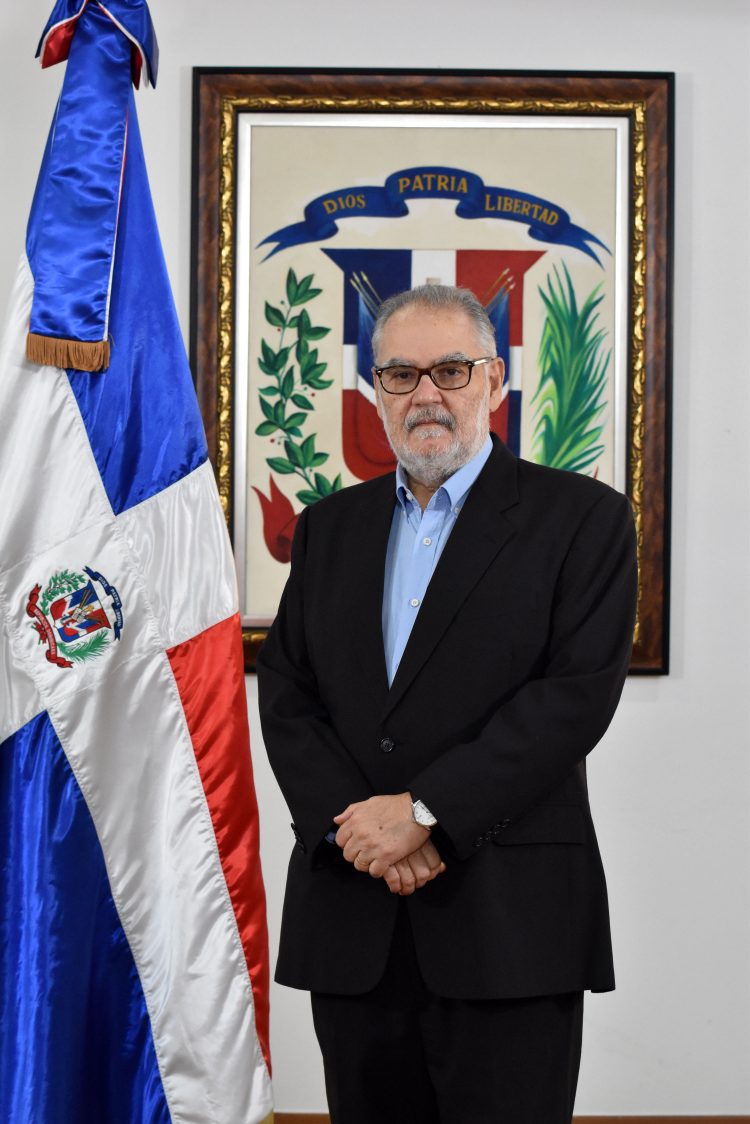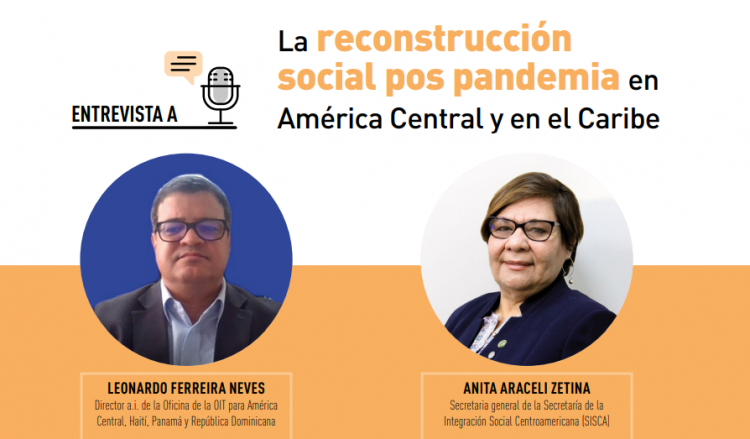Migration in Latin America and Europe is a hot topic from the point of view of human rights and access to justice. Recíprocamente interviewed Andrés Mahnke Malschafsky, National Ombudsman of Chile, who gave us his view from Latin America. In this part Victoria Ortega, President of the General Council of Spanish Lawyers, gives us her view from Europe.

What are the main difficulties/obstacles facing migrants in the assertion of their rights in Europe?
First of all, there is an enormous variety of nationalities of migrants arriving in Europe. The obstacles and difficulties they encounter in Europe are therefore of a very different type. Language is often a major obstacle. In Spain, Spanish-speaking immigrants access the job market faster and in better conditions and integrate more easily than those of African or Asian origin.
The regular entry routes to European countries, and therefore the secure and relatively solid channels for access to rights, are too narrow. The conditions for legally staying in the region can change and leave people who have lived and worked in the country for years with an illegal status. Access to social and economic rights may, in these cases, be seriously compromised (health resources, employment, benefits and social services) or may lead to expulsion, if the situation is not remedied within the legal deadlines.
Administrative procedures are also often very cumbersome and are prolonged eternally and indolently by the Administration. And when these are related to basic issues about the person’s civil and family situation, they cause great suffering.
What are the main challenges facing the institutions of the justice system in responding to the demands of this vulnerable group?
The current, globalised world, with accelerated population growth, is also characterised as one experiencing great migratory flows. With 242 million migrants in the world in 2018, according to data from the United Nations Population Fund, there is not a single country today not affected by international migration, be it as the origin, destination or transit country.
European countries, just like other regions of the world, have not adapted their laws or their policies, which obviously need resources for their application, to this situation. Governments have to create adequate procedures and mechanisms to facilitate access to justice for an increasing number of immigrants.
Immigrants are also often unaware of what authorities they must address to carry out a legal procedure, and are largely unaware of or unversed in their own rights. The authorities must be more aware of this problem and make greater efforts to inform migrant communities and invest in mechanisms of information and legal advice for migrants.
In the judicial sphere, significant efforts have been made since both the related European Union regulations and the European Convention on Human Rights are guarantors of migrants’ legal protection. However, we can say that legal operators need to increase their training in relation to specific matters of the Immigration Law – not to mention the Asylum Law – and I refer very specifically to the failures of the Justice system in protecting migrant children, especially unaccompanied children, and the flagrant ineffectiveness of protecting women trafficked for the purpose of sexual exploitation.
With regard to migration, we must still move from a currently predominant concept of national and border security, to a concept of human security for migrants and legal security for migrants, which we must promote as legal operators. For this we still have a long way to go.
What legislative reforms and/or measures/policies/programmes have been adopted in your country to make migrants’ right of access to justice effective? What impact is it having?
In Spain, the Spanish Constitution, in its article 13.1, provides that “Foreigners in Spain will enjoy the public freedoms guaranteed by this heading in the terms established by treaties and the law”, within which is the right to effective judicial protection of article 24. From there, Organic Law 4/2000 of 11 January, on the rights and freedoms of foreigners in Spain and their social integration, establishes the basic rules for these people.
Law 12/2009 on asylum also includes the right of refugees to access free justice for the processing of their asylum applications.
Regulatory and circular developments and other types of enacting regulations have been necessary to complete these legal provisions.
The application of these standards by all the institutions involved is always a process in continuous execution in which it becomes necessary to conduct meetings, congresses and collaborative projects to check their solidity and look for positive impacts.
What national/regional coordination mechanisms exist in Europe in this area?
In the EU environment there are a series of directives that seek to establish a common regulatory framework. To take one example, in the field of refugees, the directives on asylum seekers’ reception and the procedure for the granting of international protection seek to establish a common European system of asylum. It makes no sense for the asylum criteria to vary fundamentally between one country and another in a region that is common in citizens’ rights, such as the European Union. And yet it is fair to say that the criteria do indeed vary greatly from one country to another and that this common system is actually a pending challenge.
Perhaps the security forces are a good example of coordination at the European level. They register and share citizen entry databases throughout the region.
Institutional advocacy is also a good example in Spain in terms of coordination mechanisms, the establishment of guidelines and operating standards for legal assistance to migrants and foreigners. The Subcommittee on Immigration and International Protection of the General Council of Lawyers coordinates the work of 83 Bar Associations in this matter.
Working in coordination with the Ombudsman, UNHCR and the International Organisation for Migration is another valuable resource in this regard.
What European experiences or good practices could be highlighted in the field of migrant right protection and defence?
Good institutional practices are the product of political will. In Europe, the formal or theoretical starting point is a guarantee for migrants, but the complex reality of migration tells us that it is necessary for the different key agents in our culture to have some room to manoeuvre to deal with the diversity of cases that exists, because the laws and jurisprudence do not provide a mechanical solution to each and every one of the problems that arise.
This flexible view has allowed us to initiate joint projects of bar associations of various countries of the European Union to strengthen free legal aid services in Lesbos (Greece) in times of migration crisis, for example, in addition to the Greek national mechanisms themselves.
In the Council of Spanish Lawyers in particular, we have also managed to ensure that it is the collegiate lawyers, in other words those subject to deontological control, who are mandatorily in charge of legal assistance to irregular migrants when they are detected at the border. But then we have had to turn to training to provide a proper service. At the Council of Spanish Lawyers we have long been making great efforts in lawyers’ training, considering that migration is not a temporary phenomenon. Currently, with training agencies and programmes of both the European Union and the Council of Europe, for example TRALIM (EU) and HELP (CoE), we coordinate the training needs for legal aid and we collaborate to organise and conduct these training courses in Spain. We also offer training to bar associations in collaboration with UNHCR, from the humanitarian perspective of refugee law.
I would also highlight the mechanisms of legal guidance for foreigners that we have promoted at the Council of Spanish Lawyers, the so-called SOJE. Many bar associations offer this service free to any foreigner who has a legal query. This legal query is often later referred to the bar associations’ free legal aid services to initiate or continue administrative and judicial procedures.
What impact do you think guaranteeing migrants’ rights and access to justice can have on social cohesion and on reducing inequality gaps?
The correlation between access to justice and social cohesion does not need any elaborate explanation, as it is entirely obvious. Lack of access to the justice system will mean no longer being recognised the economic, social, and also civil rights, for example, that they are in need of at that time, which will lead to their social exclusion. We see this with unaccompanied migrant minors who are not recognised their alleged status as minors. Many are literally left on the street in a situation of total helplessness. Victims of trafficking who report their exploitation and do not obtain protection from the system will return to the spiral of exploitation. Immigrants who spends a few months out of work under certain circumstances and run the risk of being expelled, despite being able to prove their roots, will probably resort to the underground economy or be more likely to commit a crime. Etc.
Is there a need for greater dissemination and awareness of migrant rights? What measures/strategies could be adopted to improve perception of this issue?
The media have a relevant impact on the way we perceive immigrants. Many have managed to generate a negative and threatening perception of immigrants among society. Although the broad migratory movements coming to Europe must also be analysed from a security perspective, their consideration as a “threat” is, we could say, ridiculous and purely the product of demagogic political messages. Recognising this point is essential because the depth of these anti-immigration messages in society is hindering the political discourse on the fully recognised rights of migrants in Europe.
Therefore, of course, more widespread information about migrants’ rights is necessary, but must be accompanied by a correct treatment of the issue by the mainstream media because, for whatever reason, a part of the European population is predisposed to accept anti-immigration messages, usually based on false data and demagogic arguments.
This issue can be seen very clearly in the economic sphere. Part of society believes that immigrants are coming to take away nationals’ jobs. Meanwhile, the Secretary of State for Migration in Spain, Consuelo Rumí, explains at the Inter-American Development Bank’s “Migrations and Cities” forum that Spain, in view of the ageing of its population, will need 270,000 migrants a year to meet the needs of our jobs market until 2050.
Holding workshops with journalists on migrants’ rights and on the situation of migration could be an evocative idea in this regard.



